After three full day workshops in Toronto, Halifax, and Vancouver and a recent presentation at Banff’s Digital Transformation Summit in 2019, CAPACOA’s Linked Digital Future Initiative is generating some buzz. The prime mover behind this initiative: making performing arts events findable and shareable in the AI-powered web. Right now, Siri, Alexa, and other AI-powered recommendation systems are drawing a blank on local performance options.
Collaborating for a Shared Digital Future
To succeed, there is a call to action for radical collaboration across the arts sector to leverage linked open data to build a sector-owned knowledge graph (artsdata.ca). What’s this arts knowledge graph? It’s an open database in the cloud where the data is owned and authorized by the very arts organizations who contribute to it. Ideally, the whole arts and culture sector needs to be on board, not just the performing arts.

Partnership Development
International Partnerships
CAPACOA is an umbrella service organization for performing arts organizations. As such, CAPACOA (in Canada) has partnered with Bern University of Applied Sciences in Switzerland and a consortium of experts on both sides of the Atlantic to begin working on a standard linked data model — a logic framework with clear categories and relationship descriptions for connecting data points within the performing arts and with other knowledge domains.
Building a Canadian Knowledge Graph
Who is building artsdata.ca? Culture Creates, a private enterprise, is focused on making performing arts events discoverable. Culture Creates is working with Crow’s Theatre and CAPACOA to onboard event data from individual arts organizations into artsdata.ca. Their Footlight technology collects performing arts event information from existing websites and converts it into linked open machine readable metadata, which provides exactly the tasty data treat to satisfy the appetites of Alexa, Siri, and their AI friends.
Advocacy is another area where CAPACOA and its partners have been very active. Representatives have met with government representatives at Canadian Heritage and Canada Council for the Arts to communicate the benefits and potential of linked open data for discoverability (economic), traceability (intellectual property and remuneration), and agency (governance and independence) are well understood and properly supported. It is essential that Canada’s arts and culture sector is positioned to breaking new ground for the arts and culture sector.
CAPACOA Initiatives
CAPACOA is playing a mediating role in the Linked Open Data space — helping inform and prepare arts organizations and key stakeholders through three main activities:
- Digital Discoverability program: Culture Creates is on-boarding a first cohort 17 CAPACOA members to prototype its Footlight solution in 2019-2020. Missed cohort 1? Stay tuned for information in 2020, or contact Culture Creates directly to explore onboarding options.
- Digital Navigation program: Is your arts organization:
- integrating your organization’s digital toolkit?
- strategizing for improved SSEO and relationship with new audience(s)?
- embarking on your organization’s first Digital Strategy/Action Plan?
Fifteen (15) hours of free coaching may give you the strategic edge you’re looking for. Complete the Digital Maturity Quiz and complete the application form to determine your eligibility.
- Research: Building a standard data model; a framework with clear categories and relationship descriptions for connecting data points – and entire datasets – in the performing arts. The same is needed for the visual arts, fine craft, independent film, etc. — other arts service organizations are encouraged to begin this work. Up next: building a community of practice on linked open data standards for arts and culture.
Getting Started: Wikidata
Any artist or arts organization can take easy, basic steps to begin building an authoritative base register of linked open data that artsdata.ca at no cost. Go to wikidata.org, create a user account, and then begin populating information on an individual artist or an individual arts organization. Ensure you link to authoritative web sources wherever possible. This small act puts you in the driver seat in describing what you do and how you do it. We need to train artsdata.ca early as to how the arts is defined, rather than waiting for others to define it for us. Stay tuned for upcoming CAPACOA Wikidata initiatives on the Linked Digital Future website and check out available Wikidata resources here.
Linking Abroad
New partnerships — across arts disciplines and countries — will be key to building a shared future that lifts all boats on our own terms. Government likely has a key role to play in convening the culture sector in Canada, and helping foster necessary partnerships with partner countries. The International Federation of Arts Councils and Cultural Agencies (IFACCA) may have a role to play internationally to ensure that an inclusive collaborative approach is undertaken across the value chain in arts sectors. Linked open data strategies can have implications for traceability and protection of intellectual property and ensuring that the originators of creative work get paid properly. Pooling resources to ensure creative agency and stability for culture sectors globally makes sense.
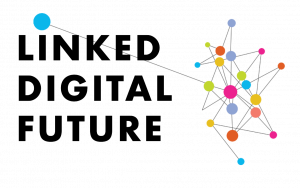
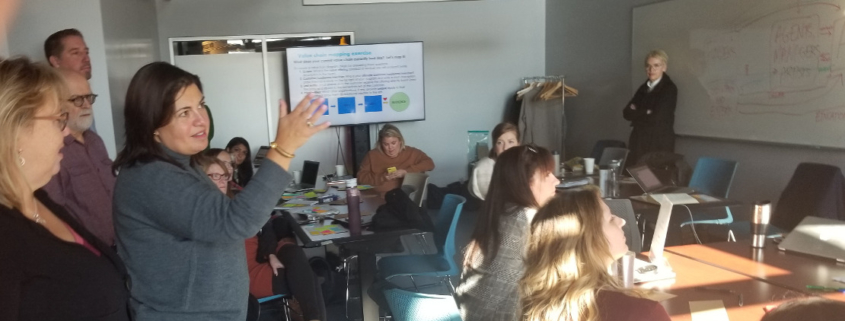
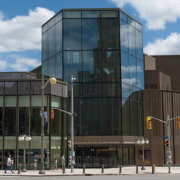
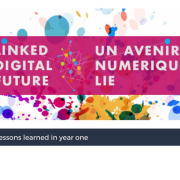
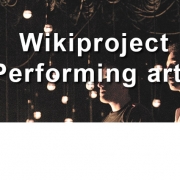
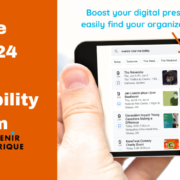
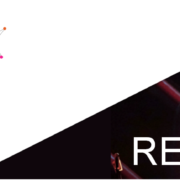
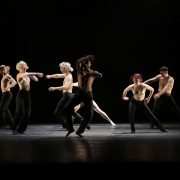 CC BY 2.0
CC BY 2.0 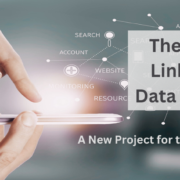 CC BY 4.0
CC BY 4.0 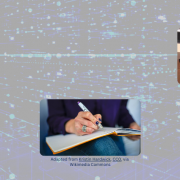





Leave a Reply
Want to join the discussion?Feel free to contribute!